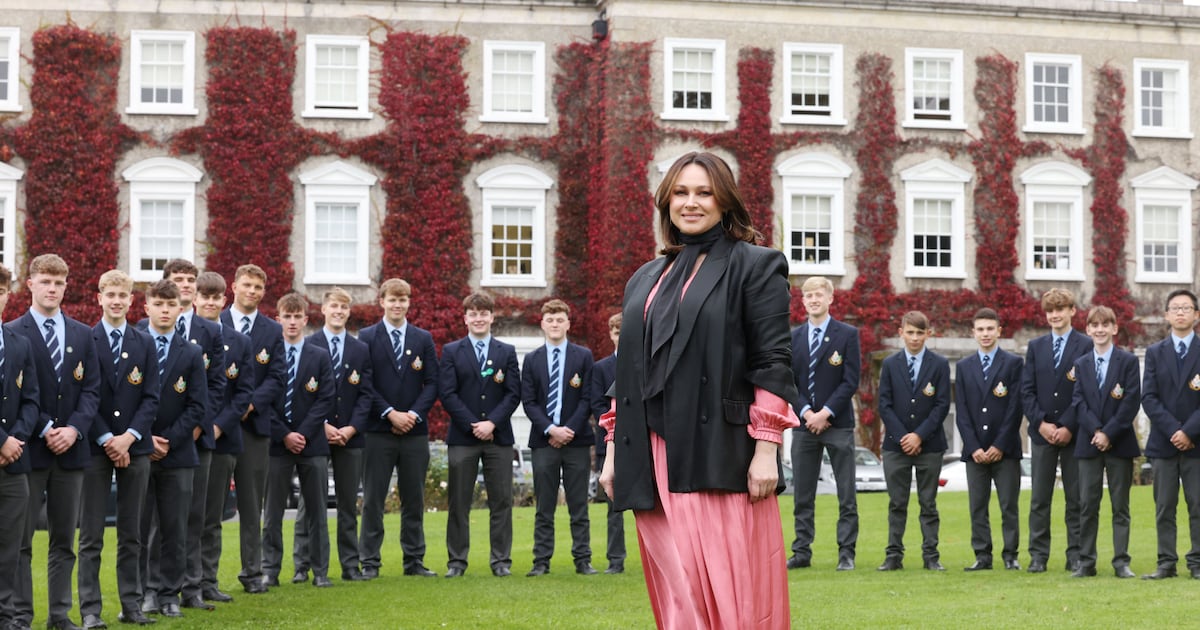Politics
Castleknock College Appoints First Female Principal in 190 Years

Castleknock College, an all-boys fee-paying school in Dublin, has made headlines this week by appointing its first female principal, Elaine Kelly. This significant milestone comes nearly 190 years after the school’s establishment and marks a progressive step towards gender equality in education leadership in Ireland.
The appointment of a woman to such a pivotal role is noteworthy, especially considering the broader context of female representation in educational leadership across the country. Women currently represent about 84 percent of primary school teachers in Ireland, with nearly 40,000 female teachers compared to approximately 7,500 male counterparts. Yet, when it comes to leadership positions, the disparity is stark. In primary schools, there are 2,118 female principals compared to 1,096 male principals, meaning men occupy nearly 33 percent of principal posts despite their lower numbers in the profession.
At the secondary level, the situation is even less favorable. Approximately 66 percent of secondary teachers are women, yet men hold about 55 percent of the principal positions. Critics often suggest that women’s choices to pursue flexible work arrangements or take career breaks for family responsibilities contribute to this imbalance. While these choices do reflect data trends, they should be viewed as a symptom of a larger issue rather than the root cause.
The lack of female leadership in schools sends a concerning message to students. Girls, who are often taught by women, may perceive that despite their hard work and dedication, they face significant barriers to achieving top leadership roles. This perception is not only detrimental to young women but also reinforces outdated stereotypes among boys, shaping their views on gender roles.
A recent study by the Higher Education Authority highlighted the persistent gender inequalities in Irish universities. From 1592 until 2020, no woman had ever held the position of president or provost at any Irish university. This changed with the establishment of a gender equality task force, leading to the appointment of the first female president at the University of Limerick in 2020, followed by similar milestones at Trinity College Dublin and Maynooth University in subsequent years.
Castleknock College’s new principal, Elaine Kelly, expressed hope that her appointment would inspire young people, particularly young women, to envision themselves in leadership roles. She emphasized the importance of visibility, stating, “It is crucial that the young men of the college see women in leadership positions as well.”
Despite these advancements, women remain underrepresented in leadership roles across many sectors in Ireland. The message is clear: achieving gender equality in educational leadership is not just about numbers; it is about changing perceptions and breaking down stereotypes that have persisted for far too long.
As Ireland continues to navigate the complexities of gender equality in education, the appointment of Elaine Kelly is a step in the right direction. Yet, by 2025, a school appointing a woman as its principal should not be newsworthy; it should be the norm. The challenge remains to ensure that future generations of girls and boys grow up in an environment where leadership roles are accessible to all, regardless of gender.
-

 Top Stories3 months ago
Top Stories3 months agoTributes Surge for 9-Year-Old Leon Briody After Cancer Battle
-

 Entertainment4 months ago
Entertainment4 months agoAimee Osbourne Joins Family for Emotional Tribute to Ozzy
-

 Politics4 months ago
Politics4 months agoDanny Healy-Rae Considers Complaint After Altercation with Garda
-

 Top Stories4 months ago
Top Stories4 months agoIreland Enjoys Summer Heat as Hurricane Erin Approaches Atlantic
-

 World5 months ago
World5 months agoHawaii Commemorates 80 Years Since Hiroshima Bombing with Ceremony
-

 Top Stories3 months ago
Top Stories3 months agoNewcastle West Woman Patricia Foley Found Safe After Urgent Search
-

 Top Stories5 months ago
Top Stories5 months agoFianna Fáil TDs Urgently Consider Maire Geoghegan-Quinn for Presidency
-

 World5 months ago
World5 months agoCouple Convicted of Murdering Two-Year-Old Grandson in Wales
-

 World5 months ago
World5 months agoGaza Aid Distribution Tragedy: 20 Killed Amid Ongoing Violence
-

 World5 months ago
World5 months agoAristocrat Constance Marten and Partner Convicted of Infant Murder
-

 Top Stories4 months ago
Top Stories4 months agoClimbing Errigal: A Must-Do Summer Adventure in Donegal
-

 Top Stories4 months ago
Top Stories4 months agoHike Donegal’s Errigal Mountain NOW for Unforgettable Summer Views









